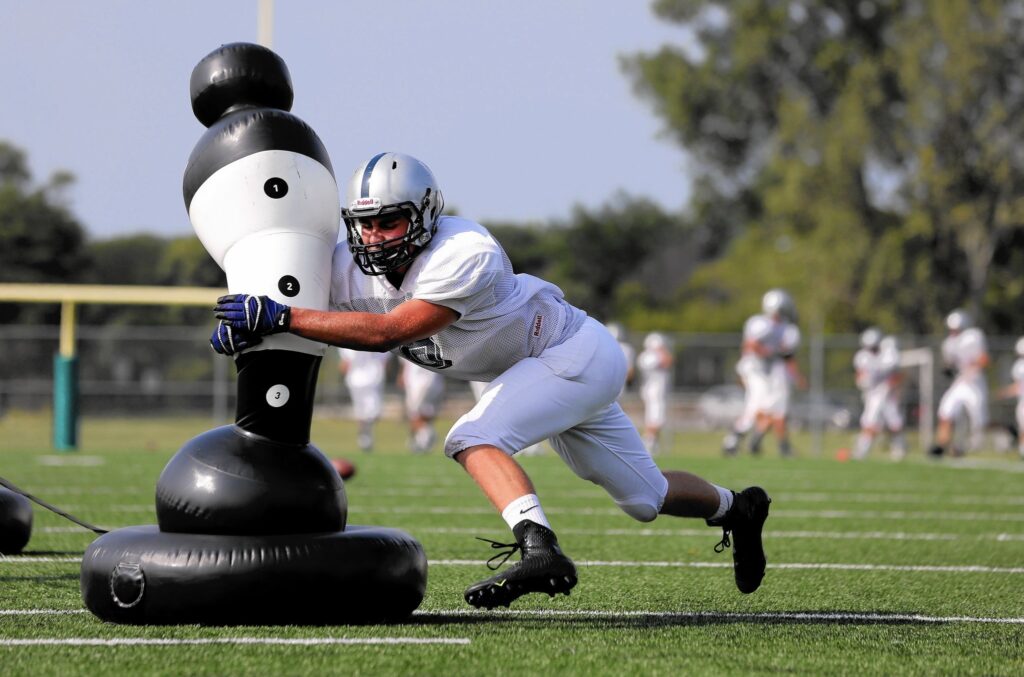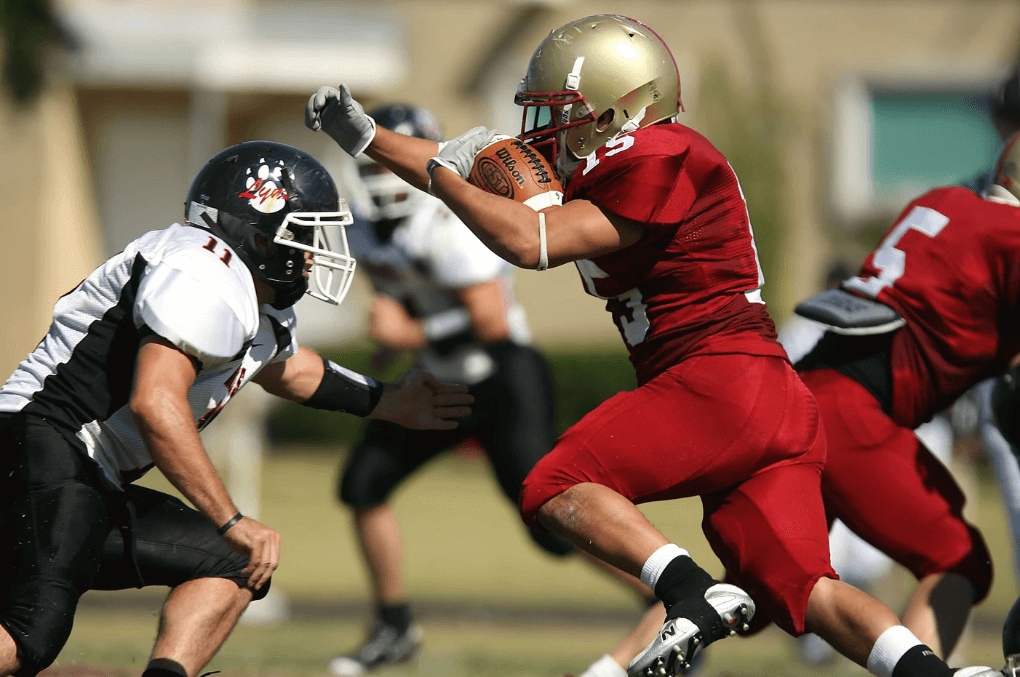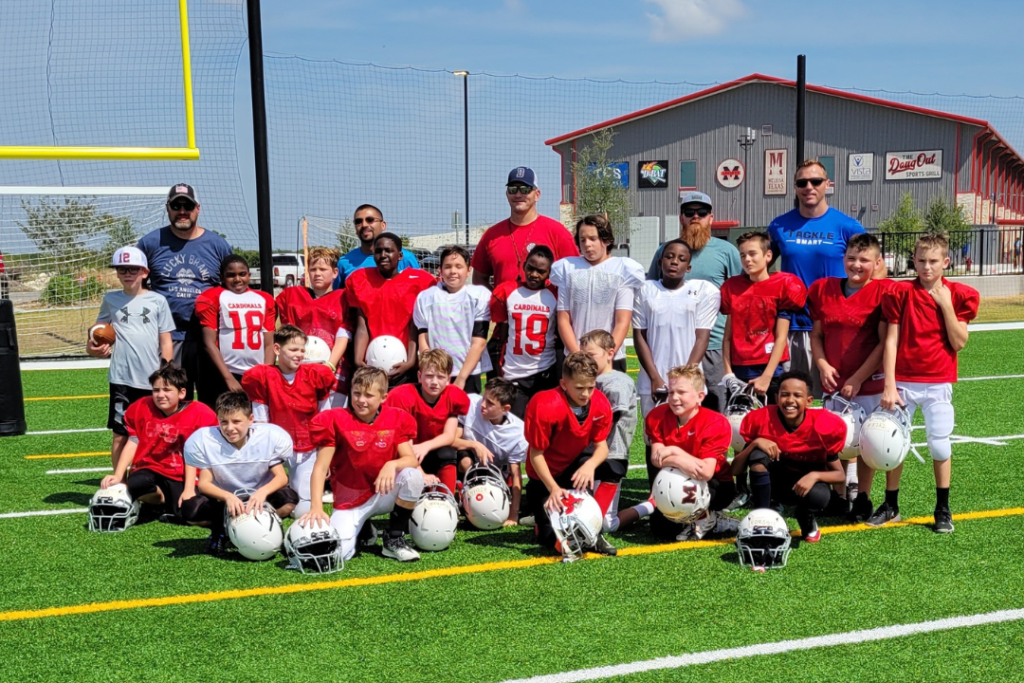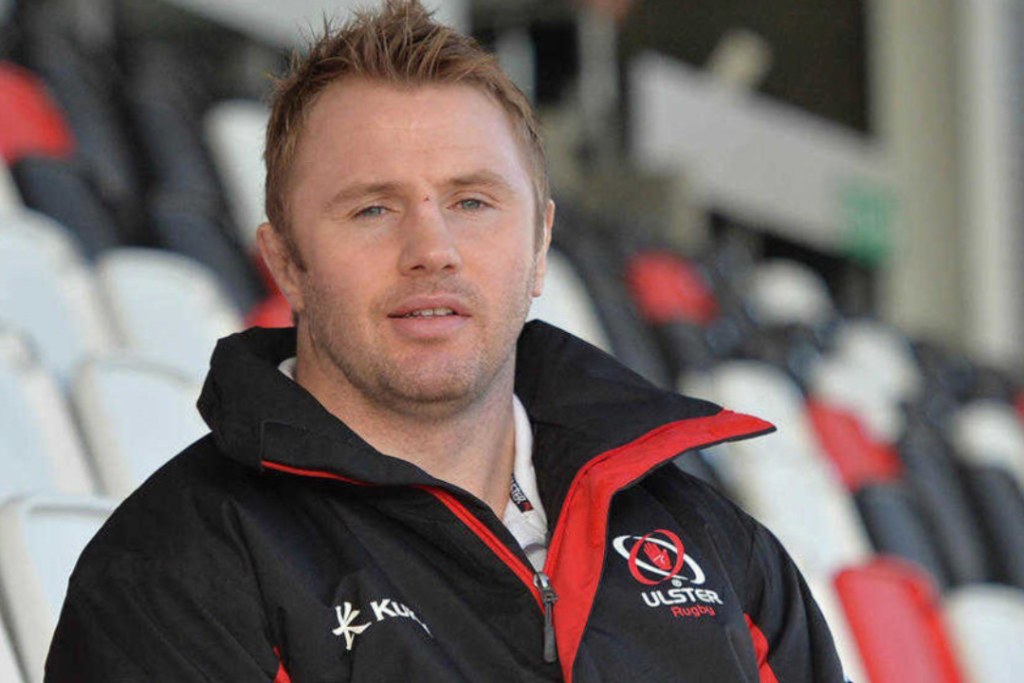Knowing when your child is ready to play tackle football can be difficult. Many studies and ideas suggest that tackle football should start at a certain age, but if that doesn’t sound realistic to you, then you are certainly not alone. No parent wants to throw their child into tackle football too early without the right tackle football coaching, but what markers should you look at to see if your kid is ready?
Here are some ideas:
What is their Physical Development?
Age is a terrible catch-all when deciding when your kid is ready for tackle football because each child develops at a different rate. All you have to do is look at a group of kids in the same class at school to see drastically different heights, weights, and emotional development levels. How is it possible that when each of these kids hits a random age – 12 is the one most pushed – they will all be ready to play tackle football simultaneously?
A 2019 Seattle Children’s Research Institute study suggested that 63% of parents support placing age restrictions on tackle football. Instead of this, we should be concentrating on the physical development of children to guide the conversation. In New Zealand, for example, full tackle rugby union at the youth level is often played with players banded into weight classes instead of by age. This means that the 10-year-old who developed early and is 30 pounds heavier than his peers will play at a level where he isn’t at risk of injuring smaller players.
Using this example for reference, know where your child is on the curve physically and emotionally compared with his or her potential teammates and opponents. If you think that the time is right, look into tackle football opportunities.
Can They Handle Contact?
A parent needs to know how their child will handle the contact aspect of tackle football before throwing them into a practice session. Thankfully, your kid should make this quite easy as you simply have to observe their behavior.
We haven’t yet reached the point where kids do nothing with their time other than gaming with friends and playing on their phones. While they may not be playing tackle football yet, there is plenty of contact in other sports like basketball and soccer that will give you an immediate guide into how they handle contact. If they often hit the ground or – especially – if they react to legal contact in these sports in an angry, upset, or frustrated way, they are probably not ready for tackle football. If they can take the contact in their stride and power through it while maintaining their composure and focus, then it is a good sign.
Another area to watch to see if your kid is ready is playing/fighting/roughhousing with their siblings. They can probably make it on a tackle football field if they give as good as they get against a brother a few years older.
What is Their Skill Development Level?
Throwing your kid into tackle football without any background in the game is not a good idea. This is because flag football has become such a big deal over the last decade that there should be an age group-based flag league close by.
These flag leagues are invaluable in the early development of a football player. They allow any player – regardless of size or speed – to work on the fundamentals of moving and ball skills. The hand-eye coordination, agility, and speed increase your child will gain from playing flag football immediately translate when they step into the tackle football arena. If your kid isn’t skilled from flag – or at the very least from playing other sports with movement patterns similar to football – then they are likely not yet ready to be in a tackle football environment.
Are They Bored of Flag Football?
The other side of the skill development level is if your kid has played and enjoyed flag but is now looking for a new challenge.
Flag football is an outstanding learning tool, and some players enjoy its pace, style, and lack of contact so much that they stay with the sport into adulthood. Other kids, however, use flag as a learning tool, knowing that they will eventually move on to playing tackle football when they and their parents agree that they are ready.
If your kid is bored/done with flag football, the first question to ask is why? This has to be a decision they and you make together – one not influenced by peer pressure in their friend group. If they are truly ready, which means everything above and having a conversation about their next step, it might be time to try tackle football.
Have You Found a Good Coach?
We previously wrote a blog on what to look for when finding a coach for your kid. Qualities like creating a fun learning environment and the ability to command and teach respect are, in our opinion, non-negotiables when looking for the person that will develop your kid as a football player. Qualities learned on the gridiron playing tackle football will be qualities that your child takes into their life, and if the work of Cobra Kai told us anything, it is that not all coaches (o senseis) teach the best life lessons.
Make sure you do your due diligence in finding a coach for your kid. There is nothing wrong with asking for references and talking to parents of players already in the program to ensure the fit is correct. Also, don’t be afraid to move from one program to another in the future if it isn’t working out. Coaches that preach safety and team spirit above a win-at-all-costs mentality should be at the top of your list.
Have They Been Coached for Tackle Football?
Do your kid a favor, and don’t throw them to the wolves without pre-coaching. We have all kinds of resources on this site – and there are more all over the internet – that show you ways to give your child a head starts instead of having them behind the curve.
We preach tackle technique for a reason. In a contact sport like football, the correct tackle technique through tackle football coaching of that specific skill is vital. A player needs to know how to tackle, what angles to take, and – even more importantly – what to avoid so that their head is never in the wrong position when making a tackle. This will make them less likely to suffer a head or neck injury, and you can concentrate on enjoying the game instead of worrying about every hit they make.
Are you a parent or coach who wants to make sure your young athlete is being taught the safest and most effective tackling techniques? Then SIGN UP to our newsletter to stay up to date with our regular content, including upcoming events or camps!
